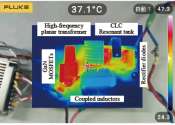Using a solidified liquid metal to build 3D flexible electronics
In recent years, engineers and material scientists have been trying to identify particularly promising materials for creating flexible electronics of different shapes and sizes. Ultimately, these electronics could be integrated ...









